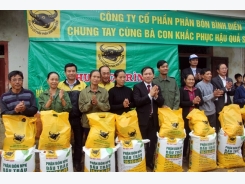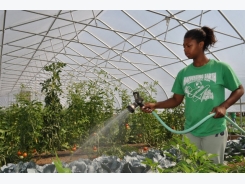USDA chief scientist expresses concerns on WHO animal antibiotic guidelines

rasslava/iStock/Thinkstock
WHO guidelines are not in alignment with U.S. policy and are not supported by sound science, chief scientist said.
On Tuesday, the World Health Organization (WHO) released recommendations regarding the use of antibiotics in agriculture. Animal agricultural groups were quick to point out that U.S. farmers are taking a look at judicious antibiotic use, and the U.S. Department of Agriculture’s acting chief scientist echoed similar thoughts in a statement later in the day Tuesday.
WHO said farmers and the food industry should stop using antibiotics routinely to promote growth and prevent disease in healthy animals. Healthy animals should receive antibiotics only to prevent disease if it has been diagnosed in other animals in the same flock, herd or fish population, WHO recommended.
Dr. Chavonda Jacobs-Young, USDA acting chief scientist, said, “The WHO guidelines are not in alignment with U.S. policy and are not supported by sound science. The recommendations erroneously conflate disease prevention with growth promotion in animals."
Jacobs-Young noted that WHO previously requested that the standards for on-farm antibiotic use in animals be updated through a transparent, consensus, science-based process of CODEX. She noted, “However, before the first meeting of the CODEX was held, the WHO released these guidelines, which, according to language in the guidelines, are based on ‘low-quality evidence’ and, in some cases, ‘very low-quality evidence.'"
Under current Food & Drug Administration policy, medically important antibiotics should not be used for growth promotion in animals. In the U.S., FDA allows for the use of antimicrobial drugs in treating, controlling and preventing disease in food-producing animals under the professional oversight of licensed veterinarians.
“While the WHO guidelines acknowledge the role of veterinarians, they would also impose unnecessary and unrealistic constraints on their professional judgment," Jacobs-Young noted.
“USDA agrees that we need more data to assess progress on antimicrobial use and resistance, and we need to continue to develop alternative therapies for the treatment, control and prevention of disease in animals,” she added. “We remain committed to addressing antimicrobial resistance in people and animals. We will continue to work with the WHO, World Organization for Animal Health and Food & Agriculture Organization to promote antibiotic stewardship to avoid the further emergence and spread of antibiotic resistance.”
Related news
Tools

Phối trộn thức ăn chăn nuôi

Pha dung dịch thủy canh

Định mức cho tôm ăn

Phối trộn phân bón NPK

Xác định tỷ lệ tôm sống

Chuyển đổi đơn vị phân bón

Xác định công suất sục khí

Chuyển đổi đơn vị tôm

Tính diện tích nhà kính

Tính thể tích ao




 Assoc targets cashew exports of US$3.5-3.7 billion
Assoc targets cashew exports of US$3.5-3.7 billion  Solutions to Help 55 Million People Out of…
Solutions to Help 55 Million People Out of…